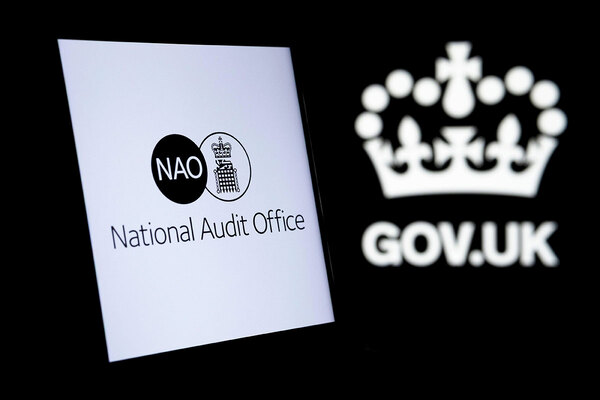You are viewing 1 of your 1 free articles
A creative approach to increasing social housing supply in a crisis
We adopted a holistic, pluralistic approach to increasing the supply of council homes by pulling numerous levers at once, says John Woolf, executive member for homes and neighbourhoods at Islington Council
Here in Islington, we are operating amid a crisis.
We have 16,500 people on our housing register. We have around 1,800 people in temporary accommodation. Last year alone, around 4,000 households came to the council for emergency help after becoming homeless – a 25% increase from the year before.
We have soaring private rents – up by around 7% from last year alone. A one-bedroom property costs around £2,000 a month to rent, while two bedrooms cost a whopping £2,500 on average.
To buy, you’re looking at £693,000.
To build, in the second most densely populated borough in England, we have limited space and, like other local authorities, soaring costs, thanks to the long-term fallout from Brexit, the COVID-19 pandemic, inflated construction expenses caused by global events, and increasingly complex and tough building regulations.
Furthermore, as London’s second-biggest landlord, with responsibility for over 25,000 tenanted properties and 10,000 leaseholders, years of rent controls have hit our Housing Revenue Account. This is all before the plethora of providers with which we work, including 51 housing associations and 33 tenant management organisations, which manage around 20,000 genuinely affordable homes in our borough.
Across London, the number of new-build homes that started construction fell by a staggering 88% between April 2023 and March 2024. Homelessness and temporary accommodation are on the rise. Local authorities are squeezed by financial constraints.
I hope you will forgive me for painting this dystopian picture, but it is our reality. Crucially, these are not just statistics; families, individuals and children face daily uncertainty.
“We remain resolute in our commitment to maximise genuinely affordable housing for each site and are pursuing a nimble approach, which enables us to consider sharing risk through partnerships alongside direct delivery”
In this cauldron of crisis and constraint, one could respond with cynicism and despondency. But, here in Islington, we chose confidence and creativity, and we are seeing results. We adopted a holistic, pluralistic approach to increasing the supply of council homes by pulling numerous levers at once.
First, we have continued to build, with 615 new genuinely affordable council homes across 40 locations, benefitting more than 2,500 residents. We have 112 under construction, with over 500 in the pipeline. Through rigorous but fair and open discussions with developers, we secured an additional 382 social rented homes through planning in the past three years – with many more to come.
We remain resolute in our commitment to maximise genuinely affordable housing for each site and are pursuing a nimble approach, which enables us to consider sharing risk through partnerships alongside direct delivery, while also exploring the potential to convert underutilised buildings into temporary accommodation.
Second, we are buying, buying, buying. We are turbocharging an acquisition programme, possibly the largest in the country, with 643 ex-Right to Buy properties bought back since 2018 and, by March 2026, the ambition to reclaim 907 homes thanks to audacious funding bids and support from the Greater London Authority, the Ministry of Housing, Communities and Local Government and utilising our Right to Buy receipts.
But we haven’t stopped there. We have increased the capacity of our housing fraud team who, since 2022, have recovered 200 council homes from tenancy fraud. Every month, I scrutinise the work of this beefed-up team who, from April to June 2025, boasted 23 reclaimed properties and £55,000 in illegal profits.
There’s more. Proactive work from our downsizing team, who received an uplift in resourcing and now offer a £1,000-per-bedroom incentive to downsize, meant we relet 272 homes through moves in the past three years alone. Our voids team is monitored closely, too, achieving a 32-day turnaround on average, which ensures we relet our properties swiftly.
“We have chosen to invest in preventative approaches matched with strong partnerships. This has meant that, despite London experiencing an increase in street homelessness, we have seen a decrease here in Islington”
All of this is supported by sound financial decision-making. We have chosen to invest in preventative approaches matched with strong partnerships. This has meant that, despite London experiencing an increase in street homelessness, we have seen a decrease here in Islington.
We also managed to prevent 900 households from becoming homeless last year – one of the largest number of preventions in the country. While residents in neighbouring boroughs spend 10-15 years in temporary accommodation on average, our average is 10 months.
Despite massive financial constraints, we prioritised investment in building safety, with £200m funnelled into improving our homes. This supported our efforts to tackle damp and mould via our in-house team and enabled us to investment in maintenance, as well as improvements on our estates, with better lighting, security and greening projects.
Domestic abuse is the second-largest driver of homelessness in Islington. We are proud that, amid this dark and tragic reality, we achieved platinum accreditation from the Domestic Abuse Housing Alliance, for our work in supporting survivors. Housing colleagues also attend a daily safeguarding meeting, which ensures wraparound support and intervention for survivors, when many local authorities hold these multi-agency risk assessment conferences on a monthly basis.
At Islington, we are never, ever complacent. There is always more we can do; there are families struggling and suffering. But in a climate of crisis, uncertainty and constraint, we are confidently showing that, with a creative and optimistic approach, real results can be achieved.
John Woolf, executive member for homes and neighbourhoods, London Borough of Islington
Sign up for our Council Focus newsletter
Already have an account? Click here to manage your newsletters
Latest stories










